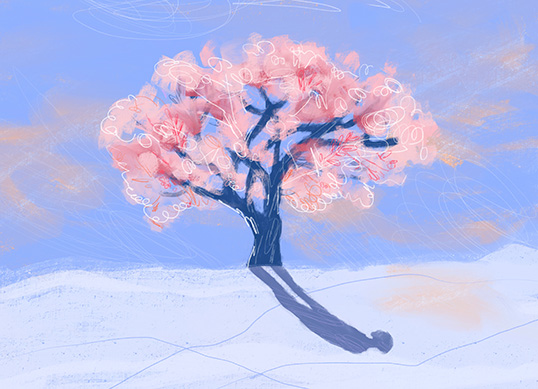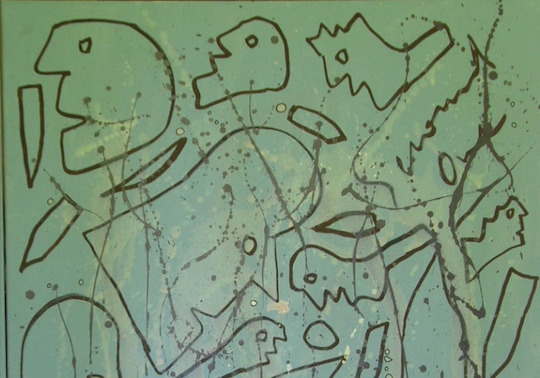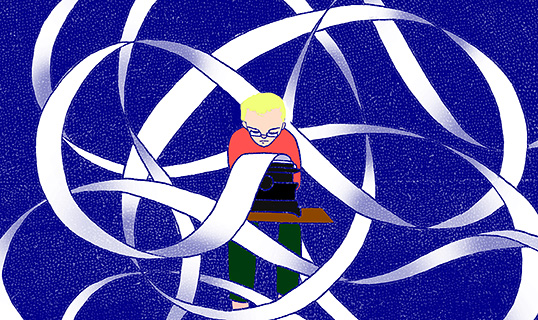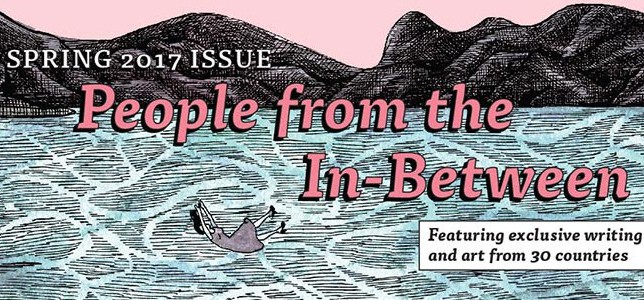Here at the blog, we continue to be amazed by the breadth of the material featured every quarter at Asymptote. From our Korean literature feature to a Japanese dadaist‘s outrageous fusion of text and image, our Spring 2018 issue again proves that the most groundbreaking material is being produced far from the centers of Anglo-American literary dominance. This issue’s Tolstoyan theme, “Unhappy Families,” might suggest an individualized focus on how each of us is unhappy in our own way. However, the blog editors’ selections all touch on wider themes of war and genocide, suggesting an undercurrent of collective trauma beneath the stories of personal travail. These pieces are just a small taste of the vast terrain covered in the Spring 2018 issue. You won’t want to miss any of it!
Iya Kiva’s three poems from “little green lights” (translated by Katherine E. Young) almost immediately caught my attention in this new Spring issue. It is divided into three sections that are distinguishable through their tone—the first one resentful, the second satirical, and the third calmly futile. The second section revolves around the punning of воды [water] and война [war], which is perhaps a rare instance when the translation succeeds even more than the original. The war in the Donbass region of Ukraine is now in its fifth year of conflict between Ukrainian and pro-Russian forces, with no end in sight. Kiva’s ironic assertions of “what if there’s no war by the time night falls” and “in these parts it’s considered unnatural / if war doesn’t course through the pipes” creates two possible interpretations: the disbelief at the war’s complete destruction, to the point that there is no running water (as if a war could be comfortably fought from both sides), and the biting accusation that war, not water, is essential to a people’s survival, as well as their nation. Running water is no longer the passive object for Romantic contemplation, but has become a basic expectation for life in a modern society, tragically, just as war has. On the other hand, not everything in Kiva’s poems is double-edged. One of my favourite lines is the simplest: “and it’s really beautiful / like in a Tarkovsky film”, which at first sounds like a platitude, but becomes charming with the realisation that nothing more can be said about a Tarkovsky film without slipping into pretention. I highly recommend our readers to delve into this poem, to question Kiva’s stance and at the same time to feel as if their own ideas are being questioned.
—Stefan Kielbasiewicz









